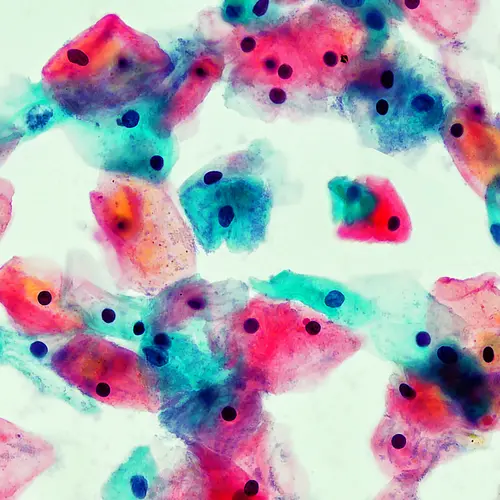Most squamous cell carcinoma of the head and neck (HNSCC) is treatable with surgery or radiation. Treatment options for cancer that has spread, called metastatic HNSCC, used to be limited. But today, your doctor can treat this stage of the disease with medicines that work with your immune system to slow or stop the cancer growth. This is called immunotherapy.
Targeted therapy drugs are also used to treat HNSCC. They work by specifically targeting cell changes found in certain cells.
Immunotherapy or targeted therapy might be an option for you if:
- You've had chemotherapy or other treatments and your cancer is still spreading.
- You can't get chemotherapy for health reasons, or you don't want to take it.
- No other treatment has worked for you.
Immunotherapy drugs that are approved to treat metastatic HNSCC are:
The targeted therapy cetuximab (Erbitux) is approved to treat HNSCC. This drug blocks a protein called EGFR and slows or stops the growth of cancer cells.
If your doctor recommends this treatment, understand what these therapies involve so you can be as prepared as possible.
How You Get the Treatment
You'll get these therapies in a hospital or medical center. The medicine is injected into your body through a tube (an IV) that goes into a vein.
You get each of the three drugs a little bit differently.
- Cetuximab: You may get this drug weekly or every 2 weeks The first treatment takes about 2 hours. You'll probably need to wait until after your treatment so the medical team can make sure you don't have a reaction to the drug. Any treatments after the first one take about 1 hour.
- Nivolumab: You may get this drug once every 2 weeks or once every 4 weeks. The doctor will inject the drug into your vein slowly over 1 hour.
- Pembrolizumab: You may get this drug once every 3 weeks or once every 6 weeks. The doctor will inject it into your vein over 30 minutes.
Most people also get another cancer treatment like radiation or chemotherapy with these therapies.
Possible Side Effects
Cetuximab can change how you feel while you take it. You might have:
- Rash
- Flu-like symptoms -- fever, chills, headache
- Nausea and vomiting
- Low levels of red blood cells (anemia) or infection-fighting white blood cells (neutropenia)
- Itching
- Brittle or weak nails
- Weakness
- Tiredness
- Diarrhea
- Loss of appetite
- Weight loss
- Sore mouth
- Red, itchy, watery eyes (conjunctivitis)
- Pain or burning in your eyes
- Hair loss or increased hair growth
Nivolumab can cause these side effects:
- Tiredness
- Rash
- Muscle or joint pain
- Itching
- Diarrhea
- Nausea
- Cough
- Shortness of breath
- Respiratory infection
- Low appetite
Pembrolizumab can cause:
- Tiredness
- Low appetite
- Trouble breathing
- Swelling of your face
- Underactive thyroid gland
- Pneumonia
- Vomiting
- Breathing failure
Some of these side effects are from the chemotherapy drugs or radiation that’s usually added to these therapies.
Some people have an allergic reaction to the immunotherapy or targeted therapy medicine. Symptoms of a reaction include:
- Dizziness
- Trouble breathing, wheezing
- Swelling of the lips or tongue
- Chest pain
You might get allergy medicines before your treatment to prevent a reaction. Your health care provider will watch you afterward to see if you have allergy symptoms. Be sure to let them know if you don’t feel well.
Cetuximab can also lower the amount of calcium, magnesium, or potassium in your blood, which can change how well some of your organs work. Your doctor will do blood tests to check levels of these minerals during and after your treatment. You might also have tests to make sure your liver and kidneys are working well.
Talk to Your Doctor
Immunotherapy or targeted therapy can be an option when other treatments haven't worked. It could slow your cancer and help you live longer, especially when you take it with chemotherapy or radiation. Make sure you're clear on the benefits and risks of immunotherapy before you start treatment.
